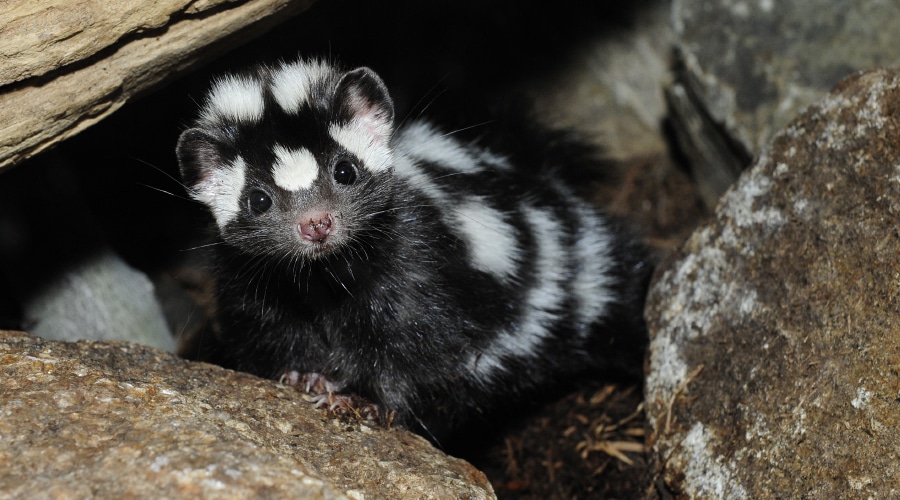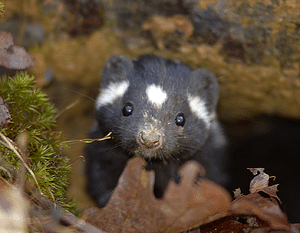Endangered Species and Other Threats to Wildlife

Arkansas currently lists 37 species that are being closely monitored to ensure they remain viable in our state. These animals include bats, birds, beetles and other species unique to Arkansas. Learn about these special creatures and how you may be able to help in building their populations back to a healthy level.
Several federal agencies have programs that specifically provide money for management of endangered species on private lands or have general wildlife habitat enhancement programs in which landowners willing to manage endangered species on their property are more likely to receive funding. Please contact the nearest Arkansas Game and Fish Commission regional office and ask for a Private Lands Biologist who will be able to provide more information on these programs.
Hibernating bats in the United States are dying in record numbers. This wildlife health crisis, white-nose syndrome, is named for the white fungus found on the muzzles and wings of affected bats. WNS was first documented at four sites in eastern New York in winter 2006. It has rapidly spread, and the fungus that causes white-nose syndrome was confirmed in Arkansas in 2013.

The spotted skunk is slightly bigger than a large squirrel. Its fur is black with patches of white and its long, bushy tail is tipped in white.
Spotted skunks live in a variety of habitats such as open fields, fencerows and forest edges. They prefer areas with natural rock crevices for den sites. They are nocturnal and forage for insects, birds, small mammals and plants. When defending itself, the skunk performs a series of handstands as a warning, drops on all fours, lifts its tail and sprays its musk. Females give birth to 4 or 5 young in June.
It is assumed to occur statewide and is thought to be more common in the Interior Highlands. More research is required to determine the abundance of this species.
If you believe that you have captured or taken a photo of a spotted skunk, please contact Blake Sasse at Blake.Sasse@agfc.ar.gov.
AGFC Resources
Contact Allison Fowler at Allison.Fowler@agfc.ar.gov
Endangered Plants
Arkansas Natural Heritage Commission
NRCS Wildlife Habitat Incentives Program (WHIP)
- General information on WHIP
- NRCS Environmental Quality Incentives Program (EQIP)
- NRCS Grassland Reserve Program
Related Resources
National Wildlife Federation’s Species Recovery Fund
The Nature Conservancy (conservation easements and land acquisition)
- The Nature Conservancy
- Arkansas Natural Resources Conservation Service
- Arkansas Chapter, The Nature Conservancy
